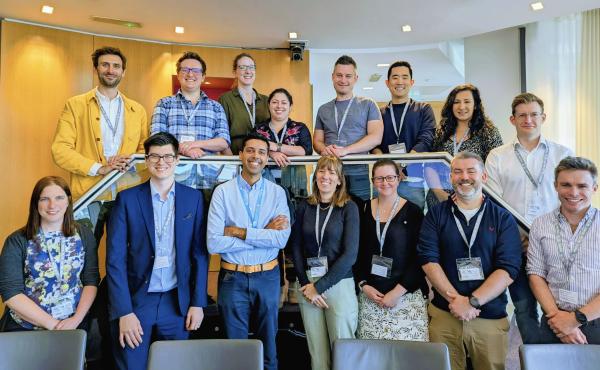ICM CCT Programme FAQs
Stage 1
During your anaesthetic placement, aim to have your IAC signed off in the first three months. You should be treated as an CT1 anaesthetist for the whole of the year and receive the same training opportunities as them. This includes attendance at teaching sessions, locally and regionally. There is no requirement to undertake an Obstetric module, but in all other respects you should partake in the anaesthetic CT1 on-call rota, and be exposed to a wide variety of anaesthetics that will vary based on the hospital you are in.
We would recommend exposure to a range of theatre lists, including those with a high turnover of cases requiring Endotracheal tubes to improve fluency and lists with complex cases requiring lines, intubation and possible ICU/HDU post op care. It will also be useful to have exposure to paediatric and obstetric lists.
We are highly supportive of Dual EM & ICM and Dual/Triple Medicine & ICM StRs completing their first year on the ICM CCT Training Programme in Anaesthesia, however this will be dependent on local availability. TPDs are urged to place a dual/triple StR (who has been recruited to ICM later on in an EM or Medicine training pathway), into Anaesthesia first in order that the ‘catch up’ of stage 1 ICM learning outcomes can be achieved.
Since the introduction of the 2021 ICM curriculum, the design and focus for the entire curriculum and aim for all HiLLOs is for it to be outcome-based, moving away from the previous time-based programme.
Therefore, Intensivists in Training (IiTs) must be able to demonstrate the capabilities as described in the key descriptors of each HiLLO, and in the case of the Medicine HiLLO 11, to a capability level 3. The GMC's General Professional Capability Domains are integrated within the HiLLOs, so do not need to be separately identified.
Dependent on the capacity, capability and prior agreement with the lead trainers within the region, IiTs during their medicine placement may have the opportunity to seek additional development and maintenance of skills/experiences that complement both medicine and intensive care, so as long as the doctor can satisfy their HiLLO requirements. This may include a placement in EM (maximum 6 months), or specialty medicine placements (such as cardiology, respiratory, etc) in addition to acute medicine and other appropriate locations. The Stage 1 Medicine outcome-based capabilities can still be met within an agreed placement timeframe between the deanery and the IiT.
Yes. It is possible to subspecialise in PICM on the ICM CCT Programme. See the PICM pages on our website for more information.
Intensivists in training must have a current NTN in ICM and have either the Primary FRCA, MRCEM or intermediate FRCEM, MRCP (UK) examinations or equivalent. Intensivists in training in a single or dual CCT in ICM can undertake sub-specialty accreditation in PICM.
Doctors undertaking a CCT in ICM should apply for PICM Grid training before the end of Stage 1 and must have completed Stage 1 of the ICM Training Programme (ST4) by the time of entry into PICM training.
Please also follow these links for further details and support:
1. Information for Anaesthetists and Paediatricians
2. RCPCH - Information on PICM subspecialty recognition as a FICM IiT
Yes. Up to 6 months of the 12-month Stage 1 Medicine requirement can be undertaken in Emergency Medicine.
Stages 2 & 3
ICM StRs should not only maintain skills achieved in their anaesthetic year, but also enhance them from a level 2 to level 3 capability. This is done through intubations and sedation in the unit as well as regular exposure to cardiac arrests, trauma calls and emergency department calls. Specialty ICM placements in neuro, cardiac and paeds will also enhance airway skills. ICM StRs may find it helpful to have some scheduled days in theatres to maintain airway skills in a more controlled environment if insufficient experience available elsewhere. It may also be a suitable application of Educational Development Time (EDT).
A logbook of airway interventions is an ARCP requirement.
Yes. You and your Educational Supervisor should take into account your previous experience when assessing whether HiLLOs have been met and maintained. For example, you can utilise your paediatric block experience as evidence for paediatrics and maintain this through reading or online modules. It is important to maintain your logbook of any neuro, cardiac or paeds encounters during Stage 3: this is important evidence of maintenance of your skill /capability level.
Yes. The curriculum is outcomes based. If you and your trainers agree that the learning outcomes and capabilities can be met across the whole year (e.g. a 6-9 month block in a General ICM placement, with the remainder of the time being spent in a Specialist ICU setting). This will be highly dependent on availability and flexibility of local programmes. However, we would support our most senior ICM StRs spending valuable training time (and gaining Stage 3 capabilities) in a placement where they may be considering post-CCT employment.
It is vital for the maintenance of your anaesthetic experience to continue to see critically unwell patients requiring resuscitation post Stage 1 training. If you are having difficulties with your local department please raise this with your ICM Regional Advisor and trainee representative. If this fails to be resolved they will also report this to the FICM StR Sub-Committee.
During Stage 2 Intensivists in Training (IiT) will be expected to develop and consolidate expertise in a special skill directly relevant to ICM practice. Areas of particular benefit to the future development of critical care and its work force are recommended including ultrasound expertise, education or research. The choice of special skill should be guided by the Programme Director to reflect the career intentions of the IiT, though the possibility of undertaking some Special Skills Year modules will by necessity be dictated by local availability or transfer out of region at the discretion of the PG Dean. For example, an IiT intending to practice in a more remote area may wish to develop greater paediatric expertise as these skills may be required more regularly in such an environment than in a large central hospital. Acquisition of this expertise must be as part of an FICM-approved, outcomes-based training programme. IiT undertaking Dual CCTs should expect to spend their Special Skills Year training in their partner specialty.
General
The curriculum is now outcomes based so there is no required number of procedures each year. The logbook summary is the only requirement to be presented at ARCP to allow guidance and facilitation to any exposure that may help consolidate future training.
Please review FICM's ARCP national checklist which should be adhered to by ARCP panels and ICM StRs.
Arrangements for EDT time are organised at a local level by hospital trusts/boards. Many trusts/health boards have facilitated EDT time to be used at home if still available to return to hospital if required for clinical issues.
SPA stands for “Supporting Professional Activities" and is also known as EDT: 'Educational Development Time'. The Faculty of Intensive Care Medicine (FICM) recommends that Stage 1 and 2 Intensivists in Training receive up to 2 hours per week, while those in Stage 3 should get up to 4 hours per week. Hospitals may allocate this differently, but its purpose is to facilitate activities that align with the GMC’s Professional Capabilities Framework. SPA time is distinct from OFF days, Annual Leave days, or Study Leave days. If you intend to be unavailable or away, it should be booked as an annual leave day. If attending a course or conference, it should be marked as study leave. Most hospitals might permit SPA time off-site, but you're expected to be reachable and ready to report for duty in cases of emergencies. Its use encompasses planning educational activities, audit/QIP activities, management activities, research activities, or attending specific clinical sessions.
Educational Development Time | The Faculty of Intensive Care Medicine (ficm.ac.uk)
There are several pathways to escalate concerns. In the first instance, we would advise speaking to your Educational Supervisor or Faculty Tutor. If the issue remains unresolved, your TPD or RA are other sources are of support. With the outcome from the national StR survey we have setup a new national reporting system which you can access through your regional representatives. This is for reporting, anonymously, any issues that cannot be resolved locally or require a central FICM led intervention to resolve.
Since the formation of PMETB and its subsequent merger with the GMC, the FICM no longer directly approves training posts. The GMC approves training programmes, such as that for the ICM CCT. It does this with "specialty input". The GMC will not approve a trust to run a training programme without agreement from the specialty in question. Support and approval is obtained from the ICM Regional Advisor by submission of the forms to the Deanery. The Deanery should then apply directly to the GMC to have the sites considered for approval. Your RA will not rotate you through a post that he/she does not believe will provide the required training standard for the programme. Simply put, if your ICM RA has rotated you to a certain post, it is approved by the FICM, via the RA as the Faculty's agent. The GMC now have a list of all approved sites on their website.
The 2021 update to the ICM curriculum (originally published in 2010) was mandated across all medical specialties by the GMC, to ensure compliance with their Excellence by Design framework.
See the links below for more information on:
- As an outcomes based curriculum (in line with all GMC approved curricula), High Level Learning Outcomes (HiLLOs) form the broad categories of what Intensive Care Medicine Doctors do. There are 14 in total.
- There are different levels of attainment at the 3 different stages of the ICM training programme:
- Some may not reach expert level at CCT (such as medicine, anaesthesia & the subspecialty ICM placements
- In some HiLLOs, expertise (or finished level required for intensive care practise) may develop at an earlier stage in training
The indicative minimum duration for ICM CCT training is 7 years, including both core and HST (Higher Specialist Training).
The ICM CCT programme is broken down into 3 overarching stages.
- Stage 1 consists of the first 4 years of training and must contain a minimum 12 months each of ICM, Anaesthesia and Medicine. Because doctors enter the ICM CCT from different core backgrounds, the first two years (at least – it may be more if the doctor is in ACCS) of Stage 1 will be Core Training. The remaining 2 years will take place in Higher Specialty Training (HST), during which time Intensivists in Training (IiT) make up those elements of the programme in which they are deficient (so an IIT from CAT will undertake medicine; an IiT from IMT will undertake anaesthesia).
- Stage 2 is the following 2 years of training, during which time IiT undertake specialist ICM modules (Paediatric, Neuro and Cardiac ICM) and a ‘Special Skills’ year. During Stage 2 IiT must pass the FFICM exam.
- Stage 3 is a final 12-month block of advanced level ICM during which time IiT develop senior management skills.
Both the Faculty and the GMC must prospectively approve any overseas training, and this would be considered on appointment to the CCT programme. In this instance the programme pursued would be considered a CESR-CP in ICM, which would be converted to a CCT in ICM on completion of the programme, and hence gain entry onto the GMC Specialist Register for that specialty.
Yes, provided that your ICM Regional Advisor (RA) is satisfied that you have not only obtained but also retained all the necessary complementary competencies. If it has been some time since you undertook the relevant complementary training, your RA may require you to undertake an assessment to be sure that you have the necessary skills and knowledge, or indeed undertake another full complementary training module. See our guidance on the CESR-CP pathway to a CCT that has more information on this.
Yes, the Faculty is aware that there are increasing numbers of single CCT in ICM holders year on year, and the workforce planning in conjunction with the Centre for Workforce Intelligence (CfWI) envisages this will continue to climb.
Related FAQs
Do you have a question not dealt with here?
If so, please get in touch.



